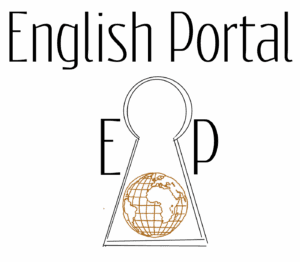Oh boy! We all have to go to the doctor sometimes. This means we have to talk to a doctor! This is not always a great experience in your native language, and the experience can be more difficult and tiring if you are trying to do it English. First, let’s move forward thinking that we are not going to the emergency room right now. Right now, we are going to a doctor that is called a “GP”. This stands for “general practitioner”. This doctor provides general medical treatment, rather than specialized medical treatment. Basically, this is the doctor you go to when you get sick.
So there’s our first piece of vocabulary:
I’m sick.
Another useful word for this topic is the verb “see”. You know this word. Here we use it to mean “visit”
Example:
I need to see a GP.
or
I’m trying to find a GP to see.
Another piece of dreaded vocabulary for this topic is “insurance”.
*this comes from the verb “dread”:
https://dictionary.cambridge.org/us/dictionary/learner-english/dread
Insurance can be very frustrating. If you don’t have insurance, you will need to pay “out of pocket”, which just means that you actually have to pay for the doctor’s services.
If you do have insurance, the staff at the doctor’s office will ask you for different information from your card, like an “ID Number” They may also ask if you have “HMO” or “PPO”. These are acronyms, similar to USA or EU or UN. HMO and PPO are different types of insurance plans and your card will probably have one of them.
Let’s do some more vocabulary. In English, we have phrases called “collocations”. These are combinations of words. A good collocation for doctors is “make an appointment” (instead of “take an appointment” or “do an appointment”.
Example:
I need to make an appointment to see Dr.——-.
Another piece of vocabulary that you will probably hear at the doctor’s office is “fill out”, which is a phrasal verb that means “complete”. Phrasal verbs are verbs that have more than one word, and their meaning is usually different from that of the main verb by itself.
Example:
Please fill out this form while you are waiting.
There are other phrasal verbs and collocations that you might here at the doctor’s office. Here are some possibilities:
“Please, roll up your sleeve”
roll up (phrasal verb)
Because…
“I’m going to take your blood pressure.”
take one’s blood pressure (collocation)
Or
“Open up”
open up (phrasal verb)
(this means open your mouth)
Because…
“I’m going to take your temperature.”
take one’s temperature (collocation)
Note: temperature is a strange medical word because it can just mean the number:
Example:
Your temperature is 98.6.
However, it can also mean that your body temperature is high if we make a collocation with the verb “have”.
Example:
Oh, you have a temperature. It’s 102!
You might also hear a phrasal verb or a collocation to communicate the same idea:
Example:
What kind of medications are you taking?
to take medication (collocation)
What kind of medication are you on?
to be on (yes! Phrasal verb!)
These are some ways that the nurse might communicate with you. Now we should consider some ways that you can communicate with the doctor. When we do this, we are usually talking about pain (noun).
We can do this by using verbs and adjectives to describe other nouns (parts of our body).
Two common words for this are the verb “hurt” and the adjective “sore”.
Example:
My throat/back hurts.
Or
I have a sore throat/back.
Another common method is to combine a part of the body with the word “ache” in order to form a noun and create another collocation with the verb “have”
Example:
I have a headache.
I have an earache.
Hopefully this has been a helpful introduction to useful English language vocabulary for talking to the doctor, and hopefully you will not need this vocabulary anytime soon!
For some extra practice, here’s an excellent link to a picture dictionary in the Internet Archive that can help you learn the parts of the body in English:
https://archive.org/details/oxfordpicturedictionary3rdedition/page/n111/mode/2up

